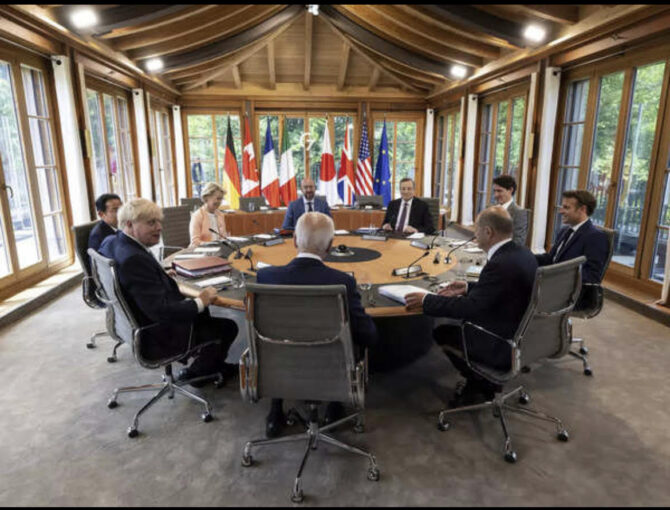
Democratic Resilience
Marah Bukai
Editor’s Letter
On the last day of their summit in the southern German province of Bavaria, the leaders of the G7 joined forces with Argentina, India, Indonesia, Senegal, and South Africa to issue a statement stressing the importance of the resilience of democracies.
The conferees issued a statement under the title “Democratic Resilience,” in which they emphasized the role that resilience can play in the face of tyrannical forces that threaten democracies, whether the threat comes from within democratic societies or from outside and around the world.
The statement notes the influential role played by civil society and independent media and highlights the means the G7 is adopting to strengthen actions needed to respond to the growing external threats related to illicit finance, corruption, negative foreign influence, and cross-border repression. Most importantly, and at the forefront, this statement condemns the Russian invasion of Ukraine as a blatant attack on democracy.
During this round, the G7 summit brought to the table and discussed significant challenges facing stable or emerging democracies in the twenty-first century. Foremost of these are the challenges China poses to the workforce on the one hand and the national security of its democratic opponent on the other. The seven countries represent nearly 50% of the entire global economy, an economy that is supported by democratic practices that devises practical solutions to economic bumps that obstruct the process of growth, development, and the open market economy.
With this in mind, the seven leaders in their meeting committed to a unified approach to confronting China’s unfair economic practices; Accordingly, these countries will use one specific language, an unprecedented language in which they recognize the magnitude and seriousness of the damage caused by the industrial directives of the People’s Republic of China (PRC). Through its attempts to divert markets from the right track and the lack of transparency in transactions. At the same time, these countries are committed to coordinating with each other to address the policies and practices that poison the global market system through their pledge to guarantee opportunities for companies and workers simultaneously.
The tendency is to enable cooperation in cyber technology while working closely with partners to achieve accountability, increase stability, strengthen security in cyberspace, and support resistant encryption. To ensure the possibility of safe operation between ICT systems and promote growth in the digital economy. This was one of the most critical features of the commitments of the seven leaders in their summit discussions.
Translated/Edited by
Zahra Karzoun
Intern with WHiA
